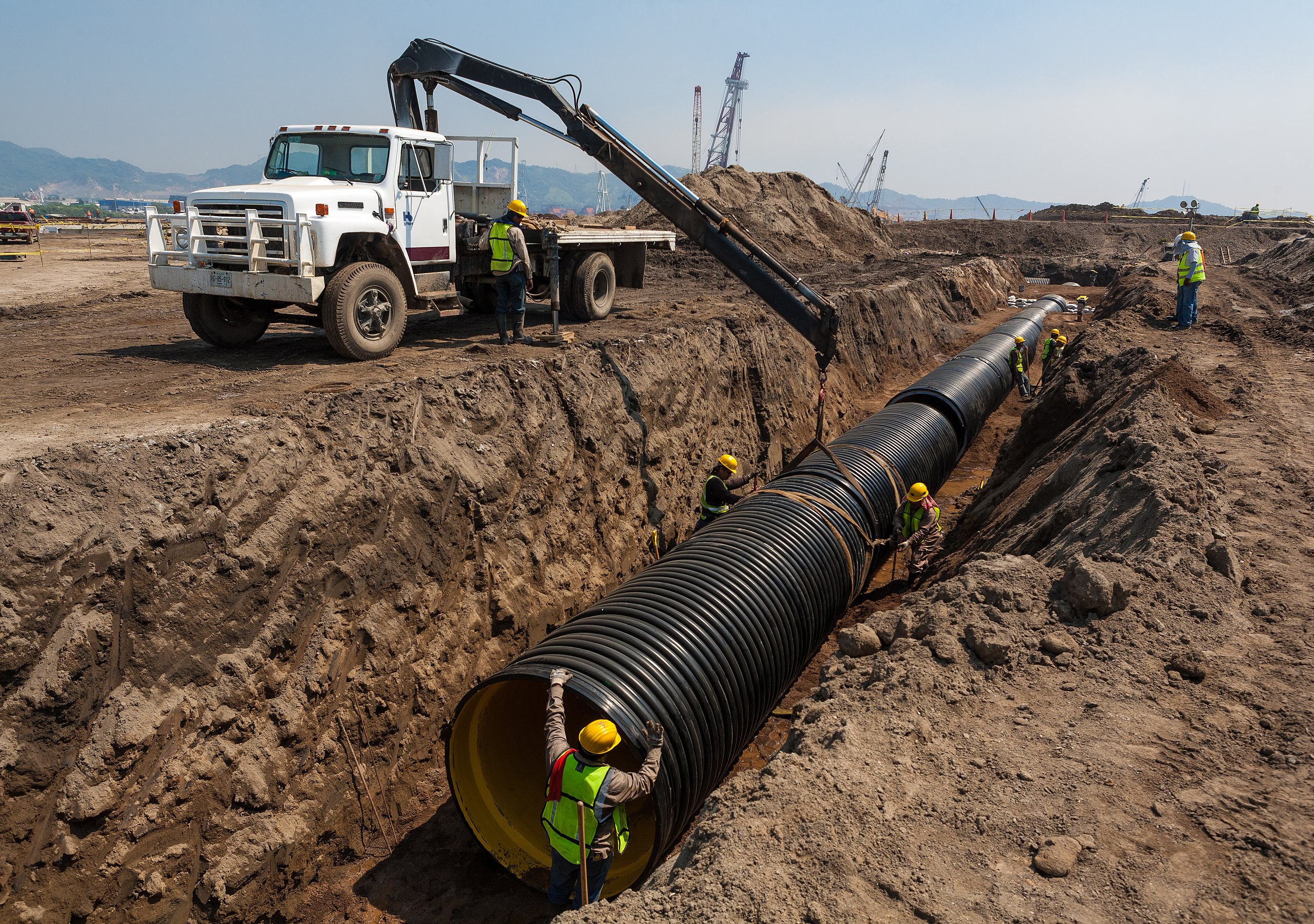How Midland TX HDPE Pipe Fittings in Stock Save Time
Understanding the Key Advantages of HDPE Pipe for Water and Wastewater Management
Making use of HDPE pipeline in water and wastewater administration offers countless benefits that warrant factor to consider. Its remarkable durability and lengthy lifespan make it a recommended choice for several jobs. In addition, the product's resistance to rust and chemical damage enhances its dependability in numerous atmospheres. Nevertheless, the advantages prolong beyond simply durability and resistance. Discovering its cost-effectiveness and environmental impact reveals much more compelling reasons for its prevalent fostering in contemporary facilities
Remarkable Toughness and Durability

HDPE pipeline attracts attention for its remarkable longevity and durability, making it a preferred choice in water management systems. Created from high-density polyethylene, these pipelines can withstand considerable stress and stress, guaranteeing reliable performance gradually. Their durable nature enables them to sustain severe ecological problems, including temperature variations and soil motions, which can create various other materials to fail.
The lifespan of HDPE pipes often goes beyond half a century, supplying an economical service for communities and sectors alike. Additionally, the material's light-weight residential or commercial properties simplify installation, minimizing labor costs and timeframes. This longevity decreases the need for frequent fixings or replacements, better improving its economic appeal.
In water management applications, the reliability of HDPE pipelines implies less disturbances and improved solution continuity, making them essential to lasting framework growth. The mix of durability and durability solidifies HDPE's duty as a cornerstone in efficient water monitoring options.

Resistance to Rust and Chemical Damage
While lots of materials catch deterioration and chemical damage in time, HDPE pipelines exhibit exceptional resistance, making them ideal for various water management applications. This strength comes from the molecular framework of high-density polyethylene, which is naturally non-reactive and does not corrode like steels or deteriorate from direct exposure to extreme chemicals. As a result, HDPE is very efficient in settings with hostile compounds, such as wastewater systems that might include acids, bases, and natural solvents.
In addition, HDPE pipelines can endure ecological variables such as soil level of acidity and saline conditions, further enhancing their viability for varied applications (American Plastics HDPE Pipe Manufacturing). Their capability to keep architectural honesty with time reduces the risk of leakages and failures, which is vital in ensuring the safety and integrity of water distribution and wastewater monitoring systems. Subsequently, the resistance to rust and chemical damage markedly adds to the overall effectiveness and longevity of HDPE piping options
Cost-Effectiveness and Financial Advantages
When thinking about the financial effects of water administration systems, the cost-effectiveness of HDPE pipelines comes to be evident. These pipes provide lower setup and upkeep prices compared to conventional products like steel or concrete. Their lightweight nature streamlines transportation and setup, causing decreased labor expenditures. In addition, HDPE pipes display a long lifespan, frequently surpassing half a century, which equates to fewer substitutes and long-lasting cost savings.
Moreover, the resistance of HDPE to corrosion and chemical damages minimizes the requirement for costly repair services and substitutes. The pipes also support effective water flow, reducing power prices connected with pumping systems. By alleviating leakages and water loss, HDPE pipelines contribute to substantial economic benefits for communities and industries alike. On the whole, the first financial trenchless sewer line investment in HDPE piping can produce significant economic returns over the life-span of the water monitoring system, making it a prudent option for sustainable infrastructure advancement.
Ecological Sustainability and Reduced Influence

Convenience and Adaptability in Installation
As a result of their distinct properties, HDPE pipelines supply exceptional convenience and flexibility in setup, making them ideal for a vast array of applications. Their light-weight nature enables easier handling and transportation, reducing labor costs and installment time. HDPE pipelines can be bent and shaped to fit numerous surfaces and project demands, which is especially useful in testing atmospheres.
Additionally, their resistance to rust and chemical damages permits installation in diverse settings without the need for view specialized safety layers. The capacity to fuse joints develops a continual, leak-free system, improving the total stability and dependability of the installment. HDPE's adaptability additionally suits ground motion, lowering the threat of damages in areas prone to shifting dirt. On the whole, these qualities make HDPE pipes not only versatile but likewise a recommended option for water and wastewater management systems.
Frequently Asked Inquiries
Exactly How Does HDPE Pipeline Compare to PVC in Water Monitoring Applications?
HDPE pipe provides remarkable versatility, resistance to corrosion, and durability compared to PVC. Its lighter weight promotes less complicated installment, while its lengthy life expectancy minimizes substitute costs, making HDPE a favored choice in water management applications.
What Is the Lifespan of HDPE Pipeline Under Common Conditions?
Under regular problems, HDPE pipelines can have a life-span varying from find out here now 50 to 100 years. Their toughness and resistance to corrosion contribute to their lasting performance in numerous applications, making them a dependable choice for facilities.
Are HDPE Water Lines Recyclable After Their Life Span?
Yes, HDPE pipelines are recyclable after their solution life. American Plastics HDPE Pipe for Oilfield. They can be refined and repurposed right into brand-new items, significantly reducing environmental influence and advertising sustainability within the market, making them a green selection for piping remedies
What Is the Setup Process for HDPE Piping?
The setup process for HDPE pipelines involves website preparation, trenching, pipeline fusion or mechanical signing up with, backfilling, and stress testing. Proper techniques assure a sturdy and reliable system for transporting water and wastewater efficiently.
Can HDPE Pipeline Be Used for Both Safe And Clean and Non-Potable Water Equipments?
Yes, HDPE pipes can be used for both potable and non-potable water systems. Their adaptability, sturdiness, and resistance to corrosion make them suitable for different applications, making sure risk-free and reliable transportation of water in various contexts.